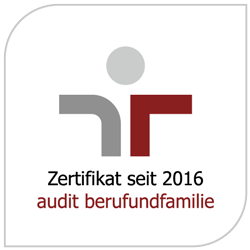In accordance with Regulation (EC) No. 810/2009, a foreign national may be issued a visa for transit through the territory of the Schengen states or for planned stays in this territory of up to 90 days per period of 180 days (Schengen visa) or an airport transit visa for transit through the international transit zones of airports.
For longer-term stays, a visa for the federal territory (national visa) is required, which is issued before entry. It is issued in accordance with the regulations applicable to the residence permit, the EU Blue Card, the ICT card, the settlement permit and the EU permanent residence permit.
Schengen visas do not entitle the holder to pursue gainful employment unless they were issued for the purpose of gainful employment.
A ‘residence permit’ is the entitlement to stay in Germany for a limited period, which can be granted for certain purposes defined in the German Residence Act (Aufenthaltsgesetz - AufenthG), such as:
- for training purposes (Sections 16, 16a, 16b, 17, Aufenthaltsgesetz),
- for gainful employment (Sections 18, 18a, 18c, 18d, 20, 21, Aufenthaltsgesetz),
- on humanitarian or political grounds, or by reason of international commitments (Sections 22-26, Aufenthaltsgesetz),
- for family reasons (Sections 27-36, Aufenthaltsgesetz)
- for reasons other than those specified in the law (in these cases, the residence permit does not entitle you to work; however, this can be permitted in accordance with Section 4a (1), Aufenthaltsgesetz).
An ICT card is a residence permit for the purpose of an intra-company transfer of a foreigner.
An intra-company transfer is the temporary secondment of a foreign national to a domestic branch of the company if the company is based outside the European Union.
It is also possible to second a foreign national to a domestic branch of another com-pany in the group of companies, which also includes the company based outside the European Union where the foreign national is employed.
The ICT card will be issued if the requirements specified in Section 19, Aufenthaltsgesetz are met.
The EU Blue Card is a residence permit for gainful employment for employees with academic qualifications who earn a certain minimum income. It facilitates mobility within the EU.
An EU Blue Card is issued to a foreign national if the requirements set out in Section 18g, Aufenthaltsgesetz are met.
A Mobile ICT card is also a residence permit for the purpose of an intra-company transfer. This residence permit is issued if the foreign national is employed as a ma-nager, specialist or trainee, the intra-company transfer lasts more than 90 days and he or she presents an employment contract valid for the duration of the transfer and, if necessary, a letter of secondment.
The settlement permit is an unlimited residence title. As this legal provision does not contain any prohibition or restriction on gainful employment, it is generally permitted to pursue gainful employment with a settlement permit. The settlement permit is issued if the above conditions are met.
The EU permanent residence permit is an unlimited residence title and, provided there are no legal exceptions, is equivalent to a settlement permit. This title also includes the right to move on to another member state.
Apart from the above residence titles according to Section 4, Residence Act (Aufenthaltsgesetz - AufenthG), a so-called Vander Elst visa can be issued. A Vander Elst visa is therefore not a residence permit within the meaning of Section 4 of the Residence Act.
Where a third-country national is lawfully employed in a country of origin (Member State of the European Union or the European Economic Area) and is posted to work in the territory of the Federal Republic of Germany without surrendering the direct relationship with the posting employer, he or she will be granted a Vander Elst visa. This visa is issued by the relevant diplomatic missions abroad without a need for approval from the German Federal Employment Agency (Section 21, German ordinance on employment). More detailed information will be provided by the diplomatic missions and consular posts abroad.
Third-country employees who are holding a long-term residence permit in another European Union Member State (see Section 2, item 8, of the Residence Act) and are posted to Germany to provide temporary services on behalf of an employer established in that other Member State, are exempted from the obligation to apply for a Vander Elst visa if their posting does not exceed three months in a twelve-month period (see Section 38a, Aufenthaltsgesetz, in conjunction with Section 17a, Aufenthaltsordnung - German ordinance on residence).
However, if the individual entitled to a long-term residence intends to provide temporary services exceeding a total of three months in any twelve-month period, a visa application continues to be required. In such cases, a visa procedure must be completed prior to entry in order to be granted a type of Vander Elst visa. The Vander Elst visa entitles expressly permits gainful employment in Germany for the duration of the relevant provision of services.
The issue of a residency entitlement is not subject to prior occupation in the delegating country.





